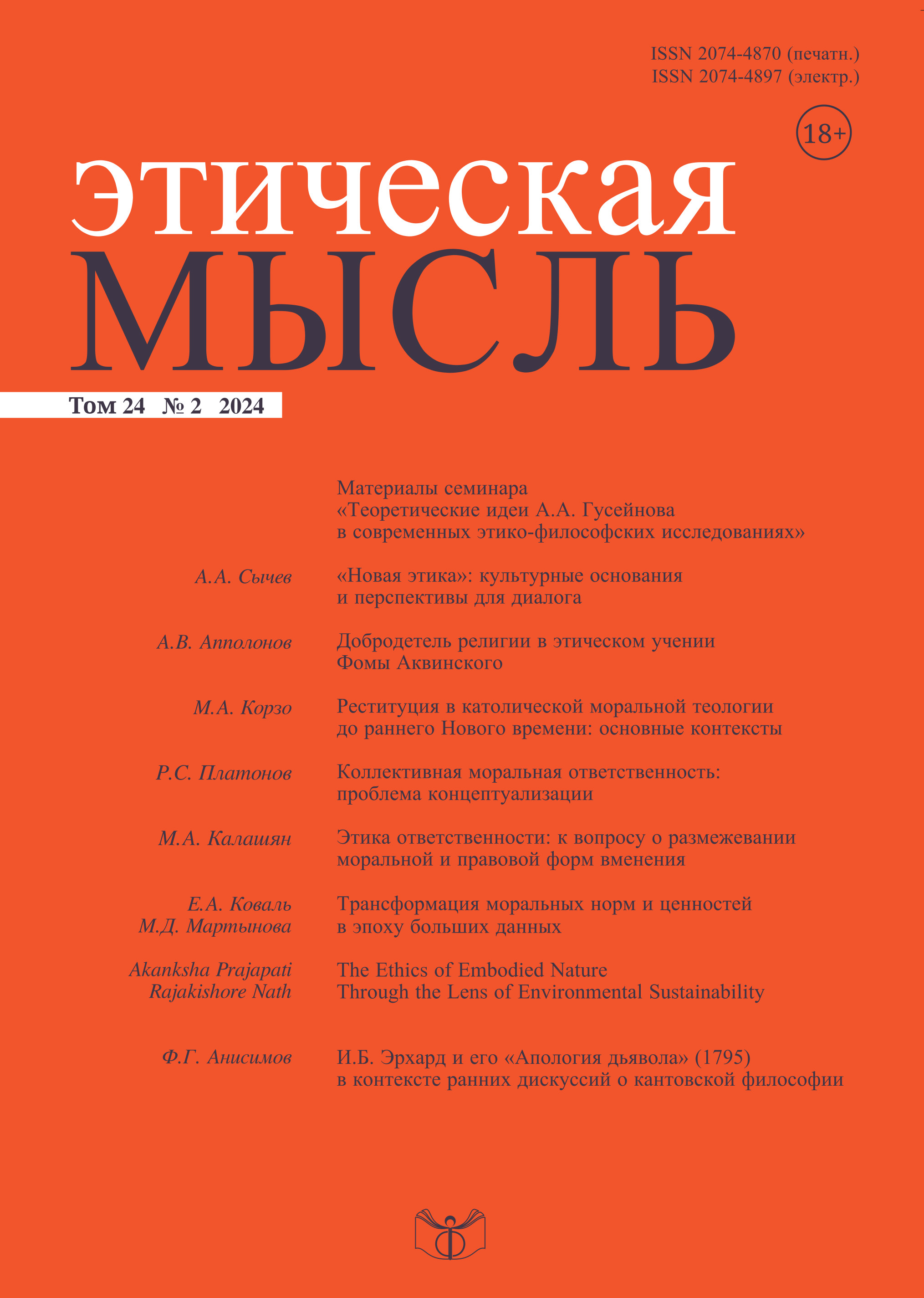Transformation of Moral Norms and Values in the Big Data Era
DOI:
https://doi.org/10.21146/2074-4870-2024-24-2-105-119Keywords:
big data, big data ethics, large language models, moral normativity, deontology, consequentialism, contractarianism, perfectionismAbstract
Big data is an information technology that is based on the rapid accumulation of huge volumes of diverse data. Analysis of this data makes it possible to identify complex patterns of human and social activity, obtain new information products and services, monitor social changes and manage them. This information technology is embedded in social systems and has a significant impact on social norms and practices. This requires ethical and philosophical reflection on the transformation of not only practices, but also the explanatory ability of basic moral theories. Big data ethics is a new field of applied ethics focused on addressing such issues. This article examines the impact of big data on universalizable moral principles and values, the content of which is substantiated within the framework of such groups of ethical theories or normative ethical programs as deontology, consequentialism, contractarianism and perfectionism. In the context of deontological theories in the big data era, the moral autonomy of the individual is problematized. In consequentialism, the problem of the relationship between personal and common good is exacerbated, as well as the definition of a moral minimum, beyond which values and beliefs cannot be abandoned under any circumstances. Contractarianism is not always able to explain the operation of the maximin principle, the distribution of inequalities and the new imbalance of power in the conditions of the continuous accumulation of big data. The challenge to perfectionist ethical theories from big data lies in the difficulty of encoding virtues and the dubious benefit of hyper-nudging towards the good for the moral improvement of individuals, who are overly trusting in delegating to technological tools the right to make decisions in situations of moral choice.









